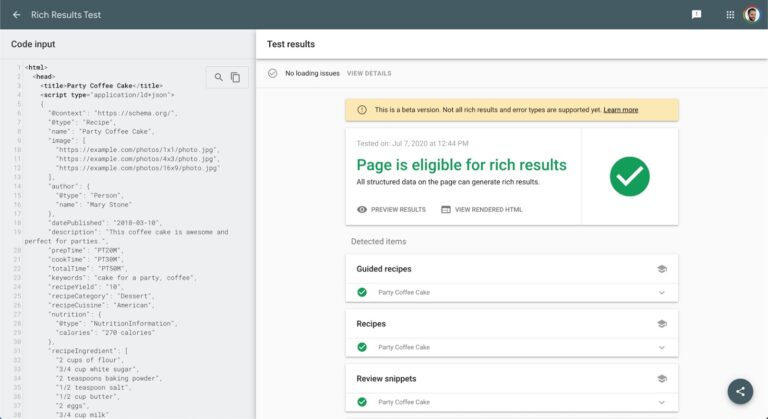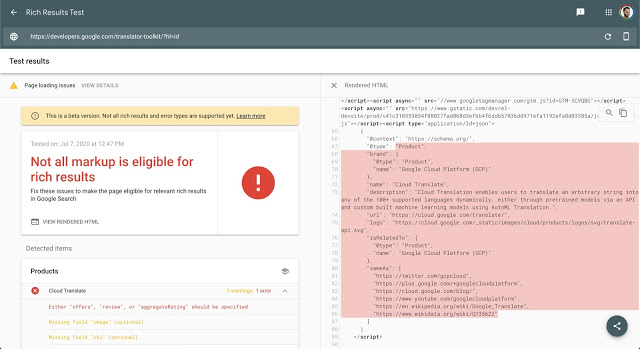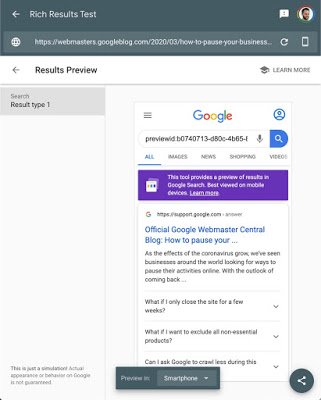Google is officially moving the Rich Results Test out of beta now that it fully supports all Google Search rich results features.
With that being the case, Google has decided it’s also time to deprecate the old structured data testing tool.
The structured data testing tool still be available for a short time, but Google recommends getting comfortable with using the rich results testing tool sooner than later.
Google emphasizes the following benefits of the rich results test over the structured data testing tool:
- It shows which Search feature enhancements are valid for the markup you are providing
- It handles dynamically loaded structured data markup more effectively
- It renders both mobile and desktop versions of a result
- It is fully aligned with Search Console reports
 Example of valid structured data on Rich Results Test
Example of valid structured data on Rich Results Test
 Example of code explorer showing error on Rich Results Test
Example of code explorer showing error on Rich Results Test
 Example of search preview on Rich Results Test
Example of search preview on Rich Results TestAnother capability of the rich results test that sets it apart is the ability to test either a whole a URL of a page, or an isolated code snippet.
In a blog post, Google explains a few things about the rich results test that more experienced SEOs are likely familiar with.
“The test returns errors and warnings we detect on your page. Note that errors disqualify your page from showing up as a rich result. While warnings might limit the appearance, your page is still eligible for showing up as a rich result. For example, if there was a warning for a missing image property, that page could still appear as a rich result, just without an image.”
More About Google’s Rich Results Test
Google’s rich results test was introduced in 2017 as a solution for testing rich snippets, rich cards, and other types of ‘rich’ elements that can be displayed in search results.
It offers a more accurate representation of how a page is displayed in search results, as well as the ability to test structured data within dynamically loaded content.
This tool is capable of testing data sources such as JSON-LD, Microdata, and RDFa.
When it was first introduced, the rich results test only had support for four types of structured data: recipes, jobs, movies, and courses.
Google’s structured data testing tool was still required for testing any other types of markup used on a page.
Now the rich results tool has caught up and is able to test for all types of markup that Google’s search results also support.
There’s much less of a need for site owners to have access to both tools, so it only makes sense for Google to deprecate the older and less capable tool at this point.
To make the transition easier for people who aren’t familiar with the rich results test, Google will still offer the structured data testing tool for a limited time.
However, if you regularly use Google’s testing tools in your workflow, then getting used to the rich results test should feel like second nature.
Source: Google





